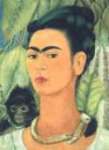
Cognitive Literary Research as a Showcase of Multidisciplinary Concept of Science
Cognitive literary research began to emerge in the 1980s when cognitive linguists discovered that numerous basic processes of human thinking could be revealed and studied within the field of literature. The study presents a survey of cognitive literary studies, research programmes, disciplines and outputs. The general goal of cognitive literary science is to identify common principles and processes of the literary text, imagination and thinking. This means providing a cognitive explanation with regard to the operation, constituents, methods and purposes of the literary process. It could be said, that every interpretation of non-cognitive literary studies has tended to reveal more correct principles of literature, and even more correct meaning/representation of a work of art (e.g. structuralism). Cognitive literary research/science reassesses these aims. If we add the authorial and perceptive procedural competences (memory, attention, emotions, etc.) to the system of literary notions, we will acquire better methodological instruments for the analysis of: the literary expression and shifts in perception; the examination of literary understanding and its types; resolution of literary agents (author, character, reader); and reasons for the popularity of given literary works and the value/negative value attributed to them. That can help us understand what literariness is, which is to find a solution to the main question of literary research, which has not yet been satisfactorily answered.
More...
